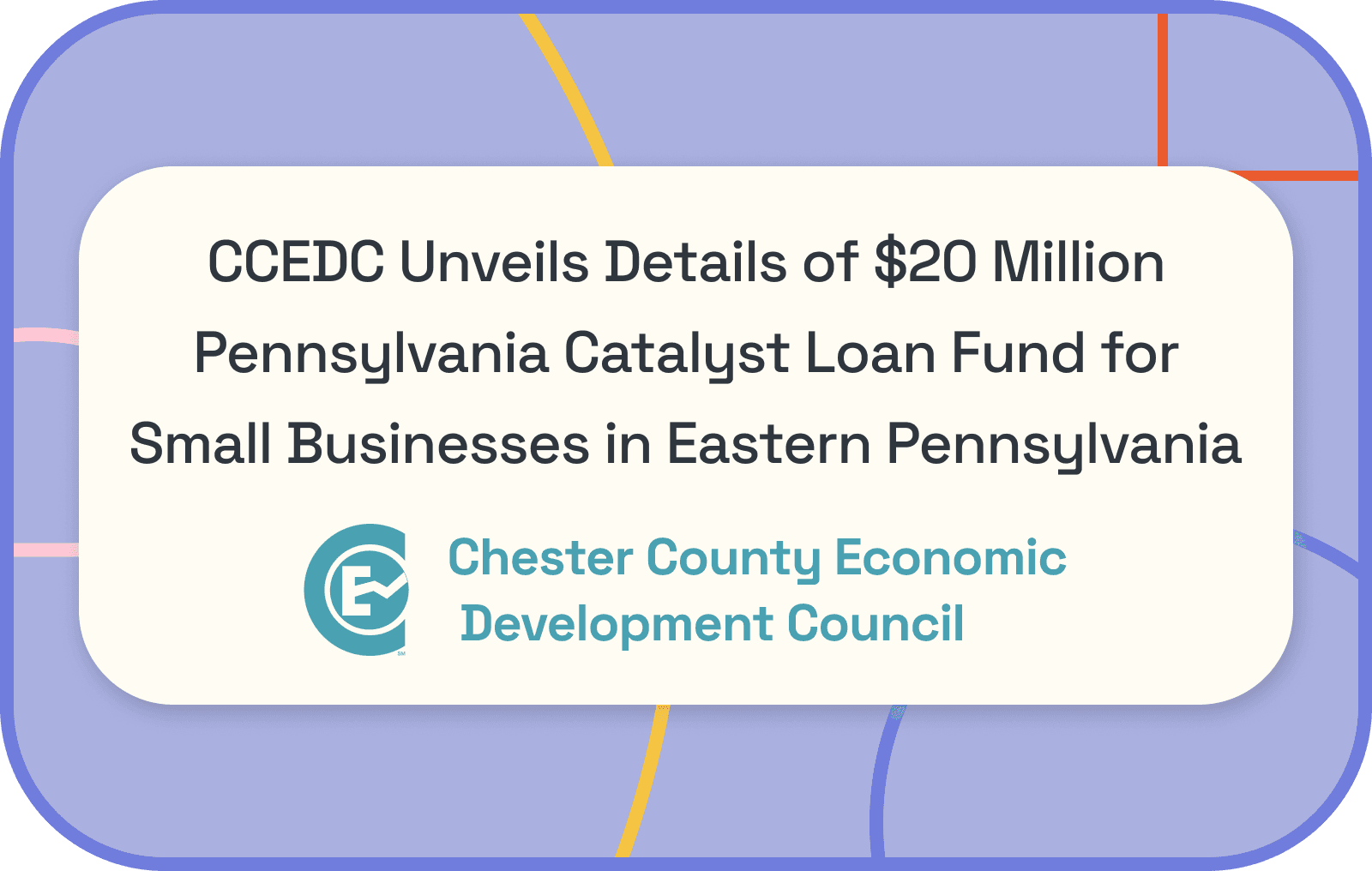Sep 8, 2023
CCEDC- Catalyst Fund Initiative
In this interview, we had the chance to speak to Chris McHenry from CCEDC. Below is a piece of the interview highlighting CCEDC’s Catalyst Fund Initiative and how those funds will benefit small businesses in eight counties across eastern Pennsylvania.
Peter Truog: You mentioned last week that you had some exciting metrics about the Catalyst fund in terms of lending to super-small businesses. Am I remembering that correctly?
Chris McHenry: "Absolutely, we have two primary objectives within the Catalyst fund initiative. Firstly, we're dedicated to extending support to what we define as very small businesses, as outlined in the Act that we acquired our funding from. This definition encompasses businesses with less than 10 employees, incorporating immediate family members and 1099 contractors. It's important to note that if a business engages 10 or more individuals in any capacity, it's not classified as very small. Remarkably, our success rate in assisting these very small businesses has been exceptional, with over 70% of our loans allocated to them. These are thriving operational entities, often managed by a single individual or involving just a couple of additional employees.
On the other hand, our focus also extends to SEDI borrowers, categorized as minorities, women, or veterans. Furthermore, these borrowers are situated within a CDFI investment area, or their business is established within such an area. Federal targets stipulated slightly over 30%, but our achievement currently stands at an impressive 100%. Since the inception of this program, we've actively closed numerous loans. Although our journey commenced with a loan closure in January, the momentum truly picked up in the subsequent months. Importantly, these loans have predominantly been extended to SEDI borrowers, precisely the individuals that the act intended to provide assistance to. We're committed to maintaining this alignment with the program's core objectives."
Peter Truog: Can you shed light on what you attribute these metrics to? Are there particular strategies you've employed, either in terms of marketing the fund, reaching out to business owners, or providing support, that you believe have contributed to these positive outcomes?
Chris McHenry: Certainly, our approach has been distinct. We haven't heavily advertised the fund; instead, we made an initial announcement and conversed with influential figures in the community. These individuals aren't activists per se, but they are respected business owners in the areas that require assistance. This network effect of word-of-mouth spread naturally. Our success, however, can be mainly attributed to our dedicated efforts in these communities over the past few years. We've been very intentional in targeting these regions. As evidence of our commitment, we established a business resource center right in the heart of one of the most underserved communities, initially renting a small office and now moving to a larger space due to demand.
One of my colleagues, Darlene, has been particularly active. She reached out to the town of Oxford, situated in the southern part of the county, where a significant Latino and Hispanic population resides. This community has a high proportion of individuals for whom English is a second language. Darlene engaged with various stakeholders, including government officials, managers, politicians, and respected community figures. Our approach isn't just about presenting a loan; it's about building trust. This community has encountered broken promises in the past, so a simple loan offer wouldn't suffice.
We've been visible during the COVID-19 pandemic, ensuring businesses qualify for grants they're eligible for. We provided hands-on support in tasks such as preparing financial statements and organizing profit and loss statements from their checking records. We embraced technology to meet with people, even on Zoom, helping them transition from the box of receipts to structured financial documentation. It's about our genuine willingness to work alongside the community and prove ourselves through tangible outcomes. This approach earned us the community's trust, a trust that was rightfully eroded due to previous disappointments with institutions that share my background.
__________
We hope you enjoyed this section of our interview with CCEDC! Stay tuned for another piece on borrower stories coming soon.
Check out more information about CCEDC’s Catalyst fund here: https://ccedcpa.com/blog/2022/09/22/chester-county-economic-development-council-unveils-details-of-20-million-pennsylvania-catalyst-loan-fund-for-small-businesses-in-eastern-pennsylvania/
